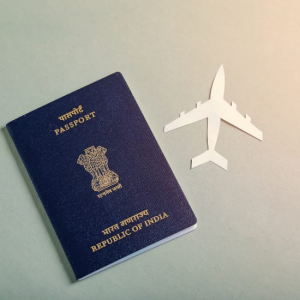What I like about TV and web series is that they come with the luxury of time and space, allowing the arc of the story to develop in enough detail. Events unfold at their own pace, and personalities reveal their inner complexities, measure by interesting measure. That additional time and space also allow the viewer to digest a different idea or perspective before moving on to the next. Happily, modern-day OTT platforms have brought us wealth in viewing from all over the world, but the content serialised on our homegrown TV channels is still frustratingly stagnant and disappointing.
However, there is one series that I watch faithfully, Aai Kuthe Kay Karte, in Marathi (based on a Bangla series). The name roughly translates to: What Does Mother Do, Anyway? The story of a powerless stay-at-home mom and of her slow transformation, stepping out of her circumscribed existence to carve a life of her own, for herself, by herself, and on her own terms. I started watching it on a very bored afternoon a couple of years ago, willingly seduced by the promise predictable in the title, that mom would eventually do a whole gobsmacking lot. In the initial stages (that I zipped through in fast-forward), it felt as regressive as all the mother-and-daughter-in-law-syndrome driven content that has ruled Indian television for decades. Arundhati, the middle-class, middle-aged, unglamorous housewife, slaves to the beck and call of her arrogant husband, his parents and her children, gets trampled upon like the proverbial pathetic doormat, has no money, few rights, and no respect at all. But she carries on regardless, convinced that in her quiet uncomplaining service lay the greater good. I cringed in disgust as I watched her societally formatted martyrdom, but stayed patient, waiting for the inevitable flip, curious to see how that would be handled.
And then it began to redeem itself. Yes, the production values remained awkwardly poor, the direction meandered around the sub-average, the episodes often stretching with stale ploys and juvenile inanities, the plotting more formulaic than inspired, and the scripting regressing off and on into stereotypical ideals about family values and women’s responsibilities. Phew. But somehow over time, it got a hold of itself, and developed something resembling a spine. The writing broached societal and inter-personal issues in their subtler nuances; the dialogues stirred, some dramatic and powerful, some quietly catalysing introspection; and the varied greys in most of the characters became believable and were convincingly portrayed. It all seemed to rise a notch, progressively so, and I felt vindicated as successive episodes worked through incremental changes in Arundhati and her situation. A growing awareness of the gap between her actual and desired status as woman, wife, mother, nurturer, thence a realignment in her attitude to the world and people around her, a gradual shedding of her crippling inhibitions and fears, and a gritty resolve to embrace a life radically different from all she has known hitherto. One of self-reliance, financially, physically, mentally and emotionally. Arundhati has now divorced her cheating husband, has a job and career, rented her own accommodation, and seems reasonably upbeat about her future. It spoke to me so loudly and clearly that it’s now become a compulsive watch. I’m hooked.
A longish but relevant side note:
I remember learning about the concept of value added in our national income accounting course in Economics. Specifically, imputing it where it wasn’t reflected in monetary payment. I remember the discussion around the bonded labourer, that human beast of burden beholden to landlords in an exploitative arrangement that typified erstwhile agricultural society, his value added subsumed in the coffers of his masters. And I remember my young mind drawing a parallel with the archetypal housewife and asking, who computes the value added by her? Her toiling through a ceaseless stream of chores, washing, cleaning, sweeping, scrubbing, cooking, serving, caring, counselling, nursing, nurturing, all through the day. And satisfying her lord and master at night, sometimes against her will. All without the prospect of retirement. Does she not add value? Then why isn’t her contribution accounted for separately in our GDP? Our mothers and grandmothers and great grandmothers and all the women before and after them, working assiduously, shouldering all responsibilities at home, enabling the men in their families to participate in the labour market and be paid. As Arundhati asks, if we have a societally sanctioned/enforced division of labour, why is working at home of any less value than working outside?
The answer, of course, is payment in money. That incontestable measure of value, source of power, yardstick of hierarchical status. Well, if every act that was done by the homemaker were to be monetised, she would have a hefty bank balance against her name too, no? Get real. That doesn’t happen. For her work is supposed to come from love and duty. Which are expected free of charge. Her time and energy and effort are owned by the collective of the family. But the pennies earned by her keeper are toted against his name, handed out as and when, providing for everyone (including her) to be fed, clothed and sheltered under his roof. Not that the keeper is necessarily cruel or callous, that may not be in his nature. But it is in the nature of the system that empowers him and not the euphemism of his better half.
Well, women have travelled a long way since this archaic division of labour and many of them are now doing it all. Giving love, doing duty, earning money. And demanding love and duty from those they are with, though not always getting as much, for the men have been slow to adjust. Arundhati is but a late entry to this fluidly dynamic mix, but she will soon realise that one aspiration she aims for, that has hitherto eluded her: Respect, as an equal.
And yet there are millions and millions of Arundhatis all over the word who are still doomed to live their lives in the shadows of their patriarchs, still toiling without relief, often slave to that burgeoning and exacting master, the sacrosanct joint family. Denied that passport to freedom, a means to earn money, their own livelihood. And conversely and perversely, there are many, many women who own that passport, but are afraid to use it. Trapped by their conditioning, swallowing the narrative of the woman’s inescapable responsibility in home and hearth, teetering through that precarious balancing act between office and home, pressured, pressured, pressured, managing it all but still deferring to the male in the home as the legitimate voice of authority. The over-worked bread-winning maid getting battered time and again by her abusive indolent husband is just one obvious example. There are many among the upper classes that are similarly victimised by the same mindsets, that also laugh self-deprecatingly at the sexist humour that contemptuously ridicules the female and her feminism. Education is their means to money and money means to power, undoubtedly. But one needs the conviction to use it. Have-wings doesn’t necessarily translate to will-fly.
Well, I applaud all the Arundhatis everywhere who have suffered, protested, braved a new life, and learned to safeguard their self-respect. All are not as viciously virtuous and irritatingly infallible as the one in the TV series, most are as grey as you and me, and their stories are probably truer and more inspiring than the one televised. But until we discover those, this one will have to do. Though I do wish that the one on TV would fumble a little, be a little selfish, get swayed from the smugly virtuous, be a little less correct. So that those who are in her situation but aren’t Miss Perfects like her could still believe they have a healthy chance to reclaim their lives for themselves. And while I’m wishing, Arundhati, please tighten your leaky water taps. Rather than getting my sympathy, your pathological crying makes me swear with impatience: What the hell did you expect, woman? Steel yourself. And move on.












